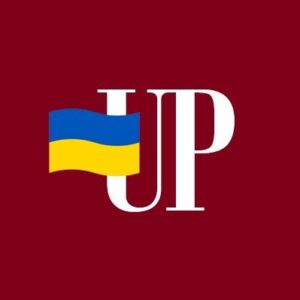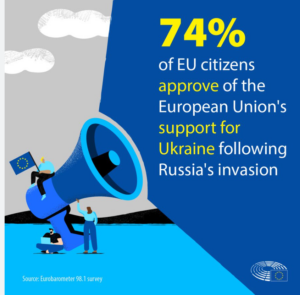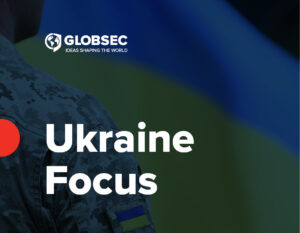Ukraine’s resistance to Russia’s invasion has been the catalyst for a democratic comeback after a decade in which authoritarianism and populist xenophobia were rising, notes analyst Michael Hirsh. Those menacing trends persist, but liberal democratic values have managed to reassert themselves on a number of other fronts, he writes for Foreign Policy.
The struggle in Ukraine initiated the trend by “awakening an awareness of what’s at stake—of how fragile democracy can be with unrestrained authoritarianism,” said Nicole Bibbins Sedaca of Freedom House. “The positive part is that people are realizing this is not just a side issue but a central existential one.”
 The response of Ukraine citizens to the Russian invasion can teach us a lot about the future of democracy, said Sevhil Musaieva, chief editor of Ukrainska Pravda, the country’s most-read online newspaper. The first thing to remember is that even nations can break down their stereotypes while building their identity. The second is that it is possible to resist even when your opponent is much stronger than you. The third is that some things cannot be taken for granted, and democracy is definitely one, she said in a recent TEDxTalk (above).
The response of Ukraine citizens to the Russian invasion can teach us a lot about the future of democracy, said Sevhil Musaieva, chief editor of Ukrainska Pravda, the country’s most-read online newspaper. The first thing to remember is that even nations can break down their stereotypes while building their identity. The second is that it is possible to resist even when your opponent is much stronger than you. The third is that some things cannot be taken for granted, and democracy is definitely one, she said in a recent TEDxTalk (above).
The Zelensky Effect effect has two dimensions, says the University of Manchester’s Olga Onuch, author of a recent article in the Journal of Democracy called “Why Ukrainians Are Rallying Around Democracy”:
- On the one hand, it is this civic-minded society where repeatedly ordinary citizens rise up collectively against authoritarian leaders or against individuals who are backsliding the country into authoritarianism. They do so in the nineties. They do so in the 2000s. They do it in 2004 with the Orange Revolution and then in 2013-14, with the Revolution of Dignity. …
- I
 t’s also about Zelensky’s discourses and how his message helps rally ordinary citizens around the civic idea of the state, around democracy, and Ukraine’s European trajectory, they add, citing Jessica Pisano’s Journal of Democracy essay on “How Zelensky Changed Ukraine.”
t’s also about Zelensky’s discourses and how his message helps rally ordinary citizens around the civic idea of the state, around democracy, and Ukraine’s European trajectory, they add, citing Jessica Pisano’s Journal of Democracy essay on “How Zelensky Changed Ukraine.”
One possibility is that we’ll see a competition between a more ethnocentric, ethnocultural vision of Ukraine versus a more civic vision of Ukraine which is associated with Zelensky, adds George Washington University’s Henry E. Hale.
It could go in different directions, he tells Democracy Paradox:
We’re also concerned about the possibility that wartime power… I mean, power corrupts, right? That’s one of the great maxims of all time. Right now, our assessment is that Zelensky has been a big proponent of democracy. But one hopes that too much power, too much support doesn’t go to his head and he starts finding excuses not to leave the presidency.
While there was a real question in the 1940s as to whether Germany could be democratic, there is no need to teach Ukrainians lessons about democracy and democratic values, notes Harold James, Claude and Lore Kelly Professor in European Studies at Princeton University. While the U.S. provided necessary funding to Western Europe through the Marshall Plan, the American government paid nowhere near the full cost of reconstruction.
 Instead, the administrators of the Marshall Plan identified and covered the costs of two key resources which Western Europe needed—foodstuffs and machinery—and these resources jumpstarted reconstruction efforts. James argued the same principle should apply in Ukraine, he told the Brookings Institution: “What [Western governments] can do,” he said, “is trigger specific bits of reconstruction, and the key to doing that is to identify the bottlenecks.”
Instead, the administrators of the Marshall Plan identified and covered the costs of two key resources which Western Europe needed—foodstuffs and machinery—and these resources jumpstarted reconstruction efforts. James argued the same principle should apply in Ukraine, he told the Brookings Institution: “What [Western governments] can do,” he said, “is trigger specific bits of reconstruction, and the key to doing that is to identify the bottlenecks.”
The Ukraine war exposed an inherent authoritarian weakness, notes Vox’s Zach Beauchamp.
In a prescient prewar analysis published in Foreign Affairs, political scientists Seva Gunitsky and Adam Casey argue, “If [Putin] makes a miscalculation and launches a major invasion, it will likely be because of the personalist features of his regime” — meaning the degree to which power has been consolidated in the hands of one man. Personalism, they argue, exacerbates a fundamental tendency of authoritarian states toward policy miscalculations.
 “Leaders suppress dissent, punish free expression, encourage personal loyalty, and divide their security agencies. They therefore struggle to understand both how their people feel and what other states are planning,” Gunitsky and Casey note.
“Leaders suppress dissent, punish free expression, encourage personal loyalty, and divide their security agencies. They therefore struggle to understand both how their people feel and what other states are planning,” Gunitsky and Casey note.
A resolution has been introduced into the US House of Representatives calling for Russia’s expulsion from the UN Security Council, reports suggest. “Russia, having unleashed an aggressive war, violated the UN Charter, which casts doubt on its right to take a seat in the Security Council,” the text of the resolution reads.
The resolution contends that Russia has never been officially admitted to the UN, having simply assumed the former Soviet Union’s UN membership and Security Council status. Belarus and Ukraine were founding members of the UN, but after the break up of the Soviet Union, other former Soviet Republics applied for membership, except for the Russian Soviet Socialist Republic which simply assumed the former Soviet Union’s membership, without applying for its own.
 By the end of 2023, Russia will face a change of power and possible power decentralization (even leading to the confederation of the regions), according to one of the possible scenarios emerging from the Ukraine war outlined by GLOBSEC, a partner of the National Endowment for Democracy (NED). In turn, this will lead to the fall of Lukashenko’s regime in Belarus, and a window of opportunity for democratic development in this country will open.
By the end of 2023, Russia will face a change of power and possible power decentralization (even leading to the confederation of the regions), according to one of the possible scenarios emerging from the Ukraine war outlined by GLOBSEC, a partner of the National Endowment for Democracy (NED). In turn, this will lead to the fall of Lukashenko’s regime in Belarus, and a window of opportunity for democratic development in this country will open.
With a view to potential dynamic changes after the fall of Lukashenko’s regime (as a result of Russia’s failure in the war), it is imperative to foresee, plan, design and be ready to promptly implement strategies for supporting fast democratic changes in Belarus, GLOBSEC analysts Iuliia Osmolovska and Hennadiy Maksak suggest in Five Security Scenarios on Russian War in Ukraine for 2022–2023: Implications and Policy Recommendations to Western Partners.
Russia’s defeat will significantly strengthen the power of transatlantic unity and the profile of the US, the UK, the EU and its member states in the world as uncompromised defenders of the free world and democratic values, they add.
2022 turned out to be a surprisingly good year for democracy — and a bad one for autocrats https://t.co/2XUTcG4zCd
— Zack Beauchamp (@zackbeauchamp) December 19, 2022







